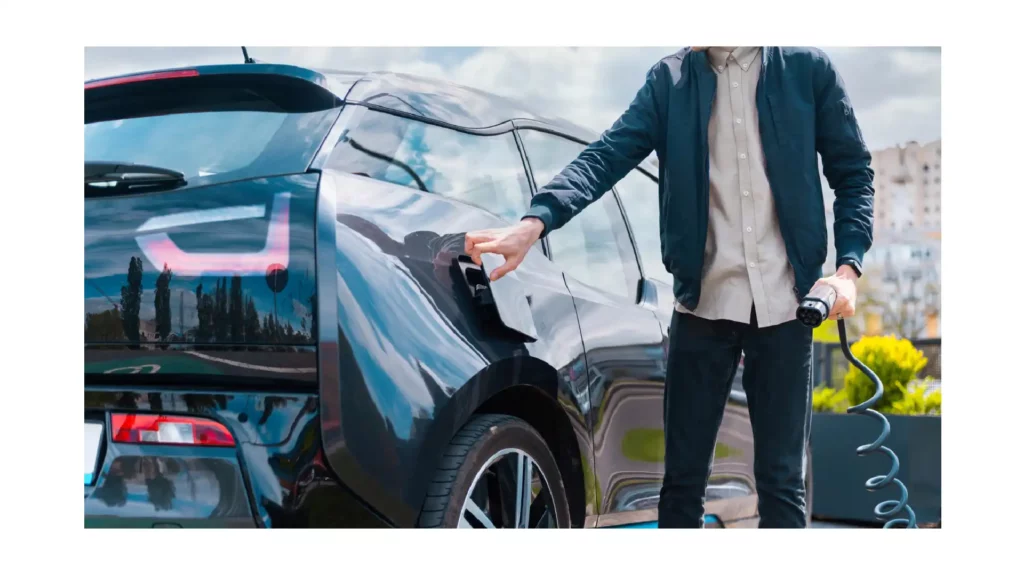In the rapidly evolving landscape of electric vehicles (EVs), battery efficiency stands as a cornerstone of innovation and sustainability.
Electric car battery efficiency not only dictates the range and performance of an EV but also impacts its environmental footprint and operational costs.
This comprehensive guide delves into the nuances of electric car battery efficiency, exploring its significance, the technology behind it, challenges, and future prospects.
Understanding Electric Car Battery Efficiency
Electric car battery efficiency is crucial for determining an electric vehicle's (EV's) range, operational costs, and environmental impact. It measures how effectively a battery converts electrical energy into kinetic energy, influencing the vehicle's range and appeal.
High efficiency means more miles per charge, lower energy consumption, and reduced carbon emissions. Factors affecting efficiency include battery design, materials, thermal management, and technology innovations like lithium-ion improvements and solid-state batteries.
Enhancing battery efficiency is key to making EVs more practical, affordable, and eco-friendly, driving forward the electric mobility revolution.
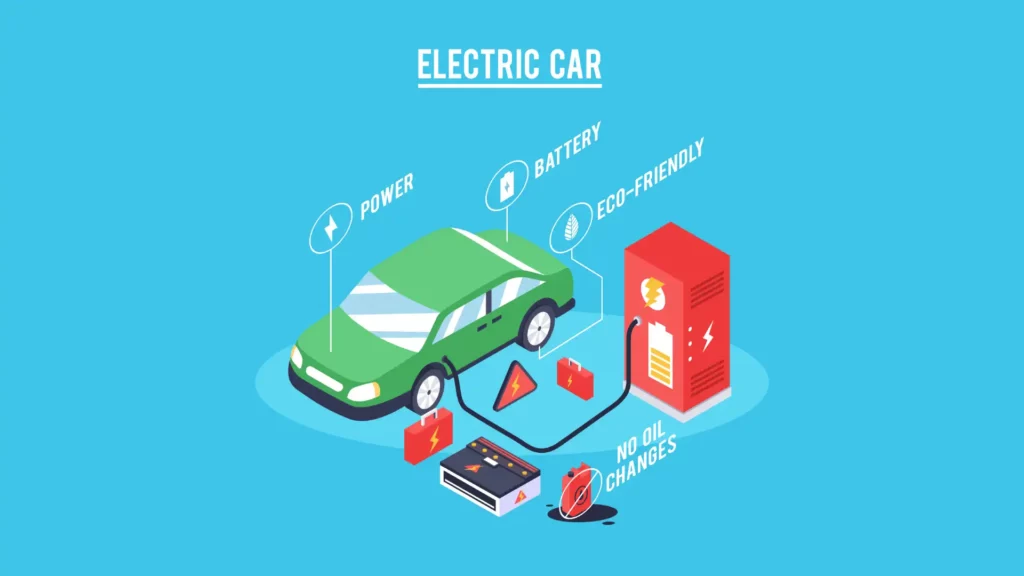
Key Factors Affecting Battery Efficiency
Several factors influence electric car battery efficiency:
- Battery Chemistry: The composition of the battery cells plays a pivotal role. Lithium-ion batteries, prevalent in most modern EVs, are favored for their high energy density and longevity.
- Temperature Management: Batteries operate optimally within a specific temperature range. Too cold or too hot, and the battery's efficiency can suffer significantly.
- Charging and Discharging Rates: The speed at which batteries are charged and discharged can impact their efficiency and lifespan. Fast charging, especially, needs to be managed carefully.
- Battery Age and Health: Over time, batteries degrade, losing their capacity to hold charge, which diminishes their efficiency.
- Vehicle Aerodynamics and Weight: Beyond the battery itself, the design of the vehicle affects how efficiently the stored energy is converted into motion.
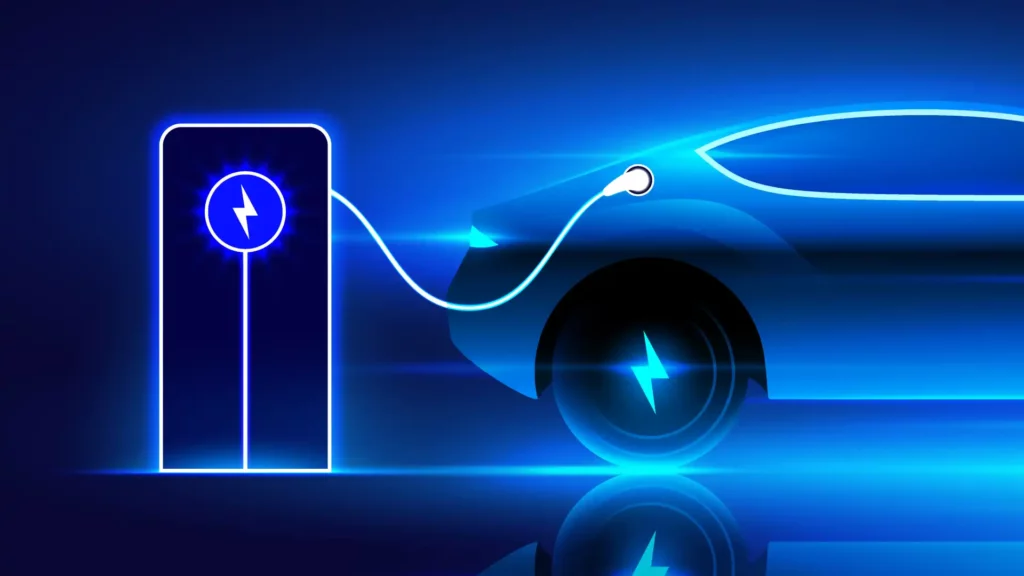
Maximizing Battery Electric Vehicle Efficiency
Battery Electric Vehicle BEV efficiency is a pivotal aspect of the modern automotive industry, focusing on how effectively these vehicles use the stored electrical energy to travel distances.
Maximizing battery electric vehicle efficiency not only enhances the driving range but also contributes significantly to environmental sustainability by reducing the carbon footprint associated with transportation.
Understanding BEV Efficiency
BEV efficiency is measured by how well it converts battery electricity into movement, impacting travel distance and consumer choice. It depends on motor and battery efficiency.
Strategies to Enhance BEV Efficiency
- Aerodynamic Design: Reducing drag through sleek vehicle design helps in conserving energy, allowing BEVs to travel further on a single charge.
- Regenerative Braking: This technology recovers energy usually lost during braking and redirects it to recharge the battery, effectively enhancing the overall efficiency of the vehicle.
- Lightweight Materials: The use of advanced materials such as carbon fiber or lightweight aluminum reduces the vehicle's weight, requiring less energy to move, thereby improving battery electric vehicle efficiency.
- Advanced Battery Technology: Innovations in battery chemistry and design, such as solid-state batteries, promise higher energy densities and faster charging times, contributing to greater BEV efficiency.
- Energy-efficient Tires: Specialized low rolling resistance tires are designed to reduce the energy consumed by a BEV during travel, thus supporting better vehicle efficiency.
- Optimized Battery Management Systems (BMS): Intelligent BMS can manage the efficiency of battery charging and discharging, prolonging battery life and enhancing vehicle range.
The Impact of EV Battery Efficiency
EV battery efficiency is crucial for sustainable electric vehicles. It affects range, environmental impact, and operating costs.
Optimizing battery efficiency attracts consumers with longer ranges and lower replacement costs. Innovations in materials, design, and management systems drive this progress.
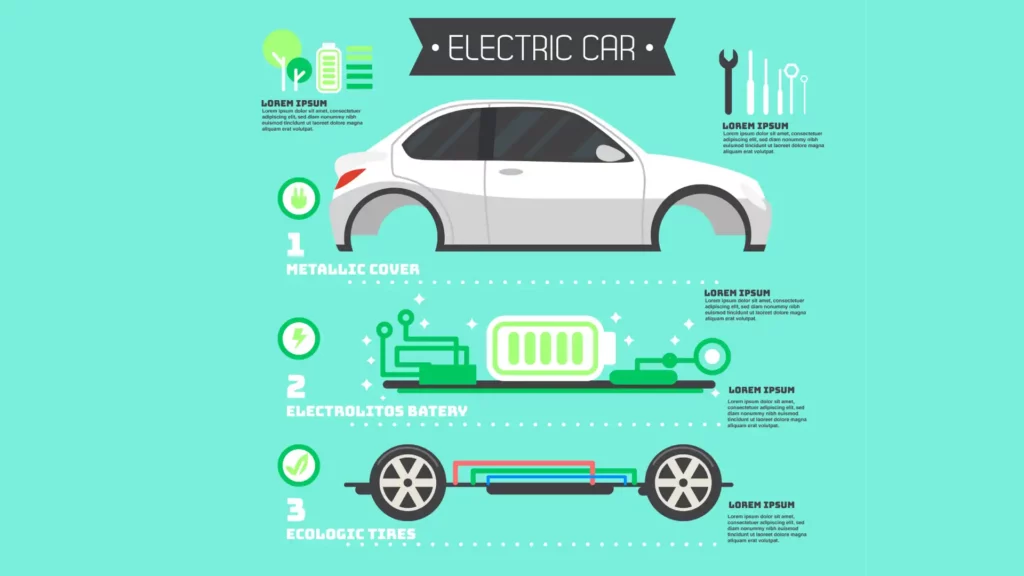
Analysis of Measuring Electric Car Battery Efficiency
Precise measurement is crucial for understanding and improving electric car battery efficiency. It includes how well a battery stores and converts energy for driving an EV. Energy density and energy conversion rate are the main metrics for measuring efficiency.
Energy Density: The Core of Battery Capacity
Energy density is crucial for batteries to store energy, measured in kWh/kg or kWh/L. Higher energy density leads to longer EV range without adding weight or size. Two energy density types to consider.
- Gravimetric Energy Density: This measures the amount of energy a battery can store per unit of weight. It is crucial for electric vehicles because the lower the weight of the battery for a given capacity, the more efficiently the vehicle can operate.
- Volumetric Energy Density: This measures the amount of energy stored per unit of volume. While less frequently discussed in the context of electric vehicles, it's still important for the overall design and integration of the battery pack into the vehicle's structure, affecting both space efficiency and aesthetics.
Rate of Energy Conversion: Efficiency in Action
The battery's efficiency, or energy conversion rate, measures how well it delivers stored energy to power a vehicle. It's not just about the amount of energy released, but also how quickly and efficiently it can be converted into motion, minimizing heat loss.
- Electrical-to-Mechanical Conversion Efficiency: This aspect of battery efficiency is crucial for understanding how well the battery's electrical energy is converted into mechanical energy, powering the vehicle's movement.
- Thermal Efficiency: Batteries generate heat during charging and discharging. Efficient thermal management systems ensure that this heat does not lead to energy loss.
- Charge and Discharge Efficiency: This reflects how much energy is retained or lost during the charging and discharging cycles.
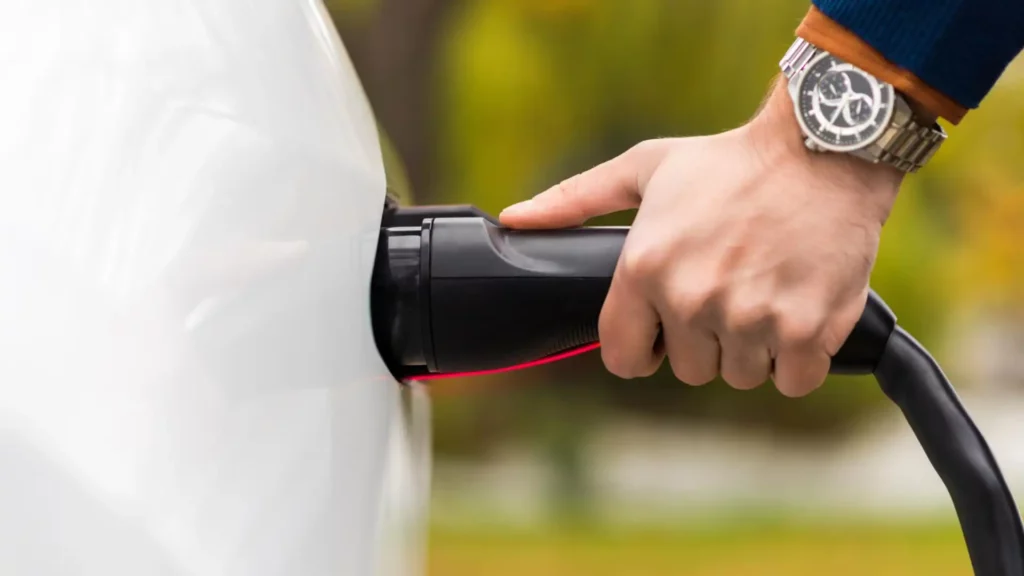
The Technology Behind Efficient Batteries
- Advancements in Lithium-Ion Technology: Continuous improvements in the chemistry and design of lithium-ion batteries to enhance their energy density, efficiency, and lifespan.
- Development of Solid-State Batteries: Introduction of batteries that use solid electrolytes instead of liquid ones, promising to be safer, more efficient, and capable of holding more energy.
- Research into Lithium-Sulfur and Solid-State Electrolytes: Exploration of new materials that could lead to lighter, more efficient batteries with greater energy storage capabilities.
- Sophisticated Battery Management Systems (BMS): Deployment of advanced systems designed to monitor the battery's state, regulate its temperature, and manage its charging and discharging processes, thus optimizing performance and extending lifespan.
- Wireless Charging Technology: Implementation of charging solutions that do not require physical connectors, offering convenience and potentially reducing wear on battery components.
- Super-Fast Charging Stations: Development of high-speed charging infrastructure to significantly reduce charging times, making electric vehicles more convenient for longer trips.
- Regenerative Braking Systems: Integration of systems that recover energy during braking, converting it back into electrical energy to recharge the battery, thereby improving overall vehicle efficiency.
Exploring Battery to Wheel Efficiency
Battery to wheel efficiency is crucial for gauging the overall energy efficiency of EVs. It measures the percentage of energy stored in the battery that is converted into kinetic energy for vehicle movement.
High battery to wheel efficiency is crucial for extending EV driving range, reducing energy use, and enhancing environmental benefits. It includes battery, drivetrain, and motor efficiency, emphasizing integrated system design.
Improving battery efficiency is crucial for electric vehicles. It maximizes performance and minimizes energy losses. Understanding this metric helps consumers and engineers innovate for sustainable transportation.
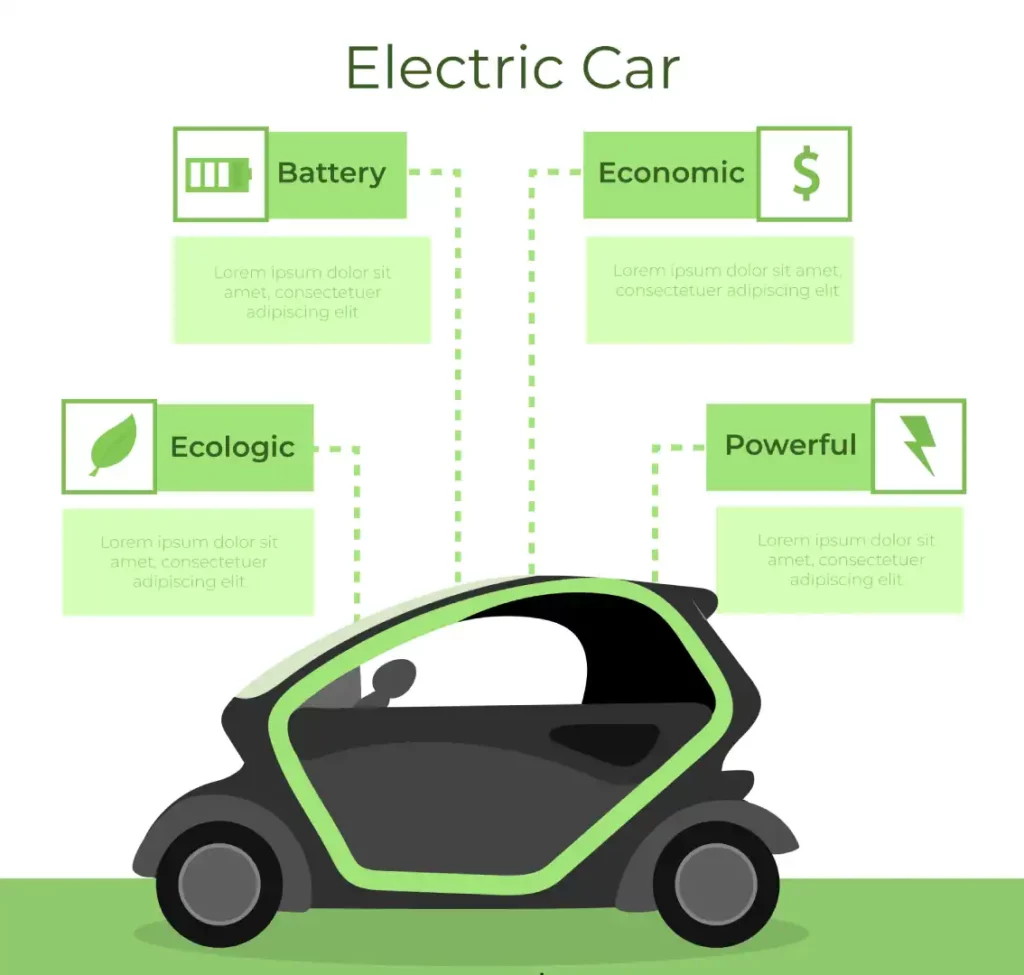
Challenges to Battery Efficiency
Despite significant progress, challenges remain in maximizing electric car battery efficiency. These include:
- Thermal Management: Keeping the battery within its ideal temperature range is a complex challenge, especially in extreme climates.
- Rapid Charging Impact: While fast charging is convenient, it can strain the battery, affecting its health and efficiency.
- Longevity and Degradation: All batteries degrade over time, but finding ways to slow this process is essential for sustaining efficiency.
- Cost and Accessibility: High-performance batteries are expensive, making EVs less accessible to the average consumer.
Discovering the Most Efficient Battery for Electric Cars
In the quest for sustainable and high-performing electric vehicles (EVs), identifying the most efficient battery for electric cars is a topic of intense research and debate.
The efficiency of an electric car's battery is paramount, as it directly influences the vehicle's range, charging speed, longevity, and environmental impact.
What Makes a Battery Efficient?
Efficiency in electric car batteries is measured by several key parameters:
- Energy Density: The most efficient battery for electric cars would have a high energy density, meaning it can store more energy in a smaller, lighter package.
- Charge and Discharge Rates: Batteries that charge and discharge efficiently are crucial for extending the driving range and lifespan of EVs.
- Temperature Resilience: The ability to perform under a wide range of temperatures with minimal efficiency loss is essential.
- Durability and Longevity: An efficient battery should also have a long lifecycle, capable of numerous charge cycles without significant degradation.
The Leading Contender: Lithium-Ion Batteries
Currently, lithium-ion batteries are considered the most efficient electric car battery, widely used across the industry for several reasons.
Their high energy density, relative affordability, and proven track record make them the go-to choice for most EV manufacturers.
Lithium-ion batteries offer a good balance of range, charge times, and durability, making them a highly efficient option for electric cars.
Emerging Technologies
While lithium-ion batteries are currently the most efficient electric car battery, emerging technologies are showing great promise:
- Solid-State Batteries: Solid-state batteries replace the liquid electrolyte in lithium-ion batteries with a solid one, potentially offering higher energy density, improved safety, and longer life spans.
- Lithium-Sulfur Batteries: With a higher energy density than lithium-ion, lithium-sulfur batteries could revolutionize electric car battery efficiency.
- Graphene Batteries: Incorporating graphene, a form of carbon, could enhance the performance of lithium-ion batteries, making them more efficient by improving energy density and charge rates.
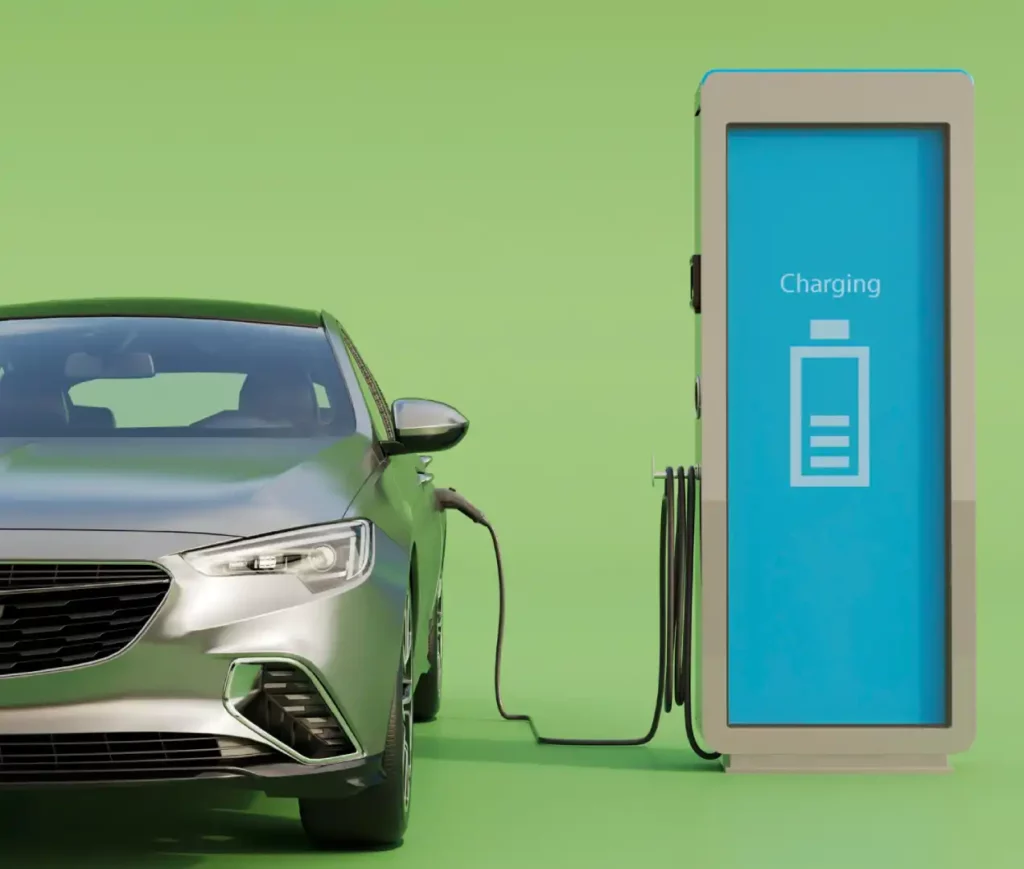
The Pinnacle of Efficiency: Cars Battery Electric Most Efficient by Far
Electric car batteries are the most efficient energy source for vehicles, surpassing traditional engines and hybrids. The cars battery electric most efficient by far mantra is not just a claim; it's supported by rigorous testing and real-world performance data.
Electric vehicles (EVs) convert over 60% of the electrical energy from the grid to power at the wheels, a stark contrast to gasoline vehicles, which convert only about 20% of the energy stored in gasoline.
EVs are highly efficient, saving fuel, and costs, and emitting less greenhouse gases. This advantage is vital for consumers and policymakers to consider in our shift toward a sustainable automotive future.
Future of Electric Car Battery Efficiency
The future looks promising for electric car battery efficiency, with ongoing research and development aimed at overcoming existing challenges.
- Emerging Battery Technologies
Solid-state batteries, which replace the liquid electrolyte with a solid, offer the promise of higher energy densities, faster charging times, and improved safety. Lithium-air and other novel chemistries are also on the horizon, potentially revolutionizing electric car battery efficiency.
- Sustainability and Recycling
As the demand for EVs grows, so does the need for sustainable battery production and recycling methods. Developing eco-friendly battery materials and efficient recycling processes is crucial for minimizing the environmental impact of electric vehicles.
- Integration with Renewable Energy
Linking EV charging infrastructure with renewable energy sources like solar and wind can further enhance the environmental efficiency of electric cars, making them a pivotal component of a sustainable future.
Electric Car Battery Efficiency Conclusion
Reflecting on the EV battery journey, I'm filled with optimism and responsibility. Advances in battery tech signal a shift towards a sustainable future. Embracing these innovations means making choices for a greener world and acknowledging our role in shaping mobility's future.
I imagine a future with efficient electric car batteries, clean transportation, renewable energy, no air pollution, and sustainability in every aspect of our lives. Let's remember that we have the power to create change. By embracing sustainable solutions, we can pave the way for a greener tomorrow.

